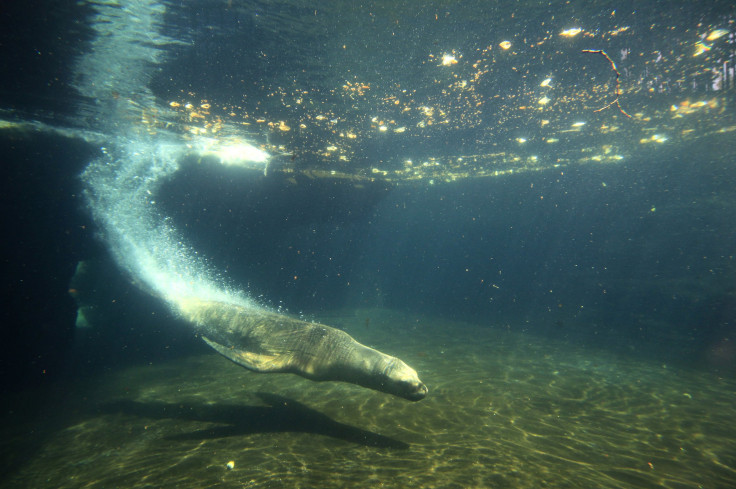Oxygen-Binding Protein Helps Diving Mammals Survive Underwater Without Air

Diving mammals, like sperm whale, have a special protein in their muscles that stores sufficient oxygen, allowing them to survive underwater for long periods of time without breathing, a new study reveals.
A group of scientists at the University of Liverpool identified a distinctive molecule of the oxygen-binding protein, called “myoglobin,” in the muscles of sperm whale and other marine mammals. Because of myoglobin muscle tissues of those mammals turn red, but champion divers like whales have so much high concentration of myoglobin that their muscle is almost black in color.
According to scientists, proteins tend to stick together at high concentrations, almost impairing their function. Therefore, it was unclear how myoglobin helped the body stock up sufficient oxygen to allow marine mammals go for deep underwater diving for long periods of time without breathing.
Elite mammalian divers can hold their breath for more than an hour underwater, while land mammals, such as humans, can hold their breath for only a few minutes.
“We studied the electrical charge on the surface of myoglobin and found that it increased in mammals that can dive underwater for long periods of time. We were surprised when we saw the same molecular signature in whales and seals, but also in semi-aquatic beavers, muskrats and even water shrews,” Dr Michael Berenbrink from the Institute of Integrative Biology at the University of Liverpool said.
“By mapping this molecular signature onto the family tree of mammals, we were able to reconstruct the muscle oxygen stores in extinct ancestors of today’s diving mammals. We were even able to report the first evidence of a common amphibious ancestor of modern sea cows, hyraxes and elephants that lived in shallow African waters some 65 million years ago.”
The study, published in Science, suggests that increased electrical charge of myoglobin in mammals that have high concentration of this protein causes electro-repulsion, which prevents the proteins from sticking together. As a result, these mammals develop much higher concentrations of the oxygen-storing myoglobin in their muscles.
Scientists believe that the new research will help improve understanding human diseases, such as Alzheimer’s and diabetes, where protein aggregation is a problem. They are also hopeful of finding more information on the development of artificial blood substitutes.
© Copyright IBTimes 2024. All rights reserved.






















